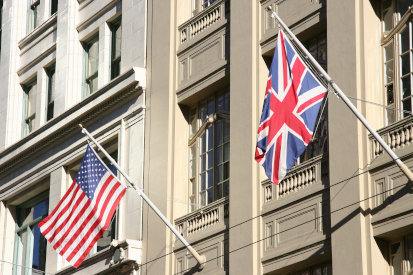US Embassy employee’s wife has immunity following fatal car accident in the UK
The wife of a United States Embassy staff member is unlikely to face prosecution in the United Kingdom for her involvement in a fatal car accident last year.
England’s High Court recently ruled that she was entitled to diplomatic immunity at the time of the incident.
Case background and immunity for family members of diplomatic staff
On Nov. 24, 2020 the High Court of Justice in England handed down its judgment in R (Charles & Dunn) v Secretary of State for Foreign and Commonwealth Affairs [2020] EWHC 3185.
The proceedings were brought by the family of Harry Dunn, a 19 year-old who was killed in a car accident in August 2019 by Mrs. Anne Sacoolas, the wife of a technical staff member of the United States Embassy based in Croughton, United Kingdom.
Mrs. Sacoolas, who admitted to driving on the wrong side of the road when she struck Mr. Dunn, was permitted by U.K. authorities to leave for the U.S. soon after the incident. This permission was granted following discussions between the U.S. Embassy and the U.K. Foreign Commonwealth Office (FCO) during which the Secretary of State for the FCO determined that, as the spouse of a U.S. Embassy staff member, Mrs. Sacoolas enjoyed legal immunities in the U.K. which prevented authorities from arresting, detaining or prosecuting Mrs. Sacaloos in relation to the incident.
The Claimants’ challenge
Mr. Dunn’s family (the Claimants) sought judicial review over the FCO’s handling of the matter on grounds that:
- The Secretary of State erred when determining that Mrs. Sacoolas had criminal immunity,
- The FCO had provided unlawful advice and/or obstructed justice when they determined that Mrs. Sacoolas had criminal immunity, and
- This led to a breach of the U.K.’s procedural obligations under Article 2 of the European Convention on Human Rights 1950 to conduct a proper inquiry into Mr. Dunn’s death.
Their argument centered on a series of Diplomatic Notes exchanged between the U.S. and the U.K. from 1995 to 2006 which outlined the immunities afforded to Croughton’s administrative and technical staff and specified that the U.S. had waived its right to assert criminal immunity on their behalf for acts committed outside of official duties. The Claimants argued that because the Diplomatic Notes did not explicitly afford immunities to families of embassy staff, that Mrs. Sacaloos was not entitled to criminal immunity.
In the alternative, the Claimants argued that at most, immunities for families could only be implied or derived from the immunities afforded to embassy staff in the Diplomatic Notes. They argued that because of this, any immunities afforded to families should be no greater than the immunities afforded to embassy staff and subject to the U.S. waiver. The Claimants argued that accordingly, Mrs. Sacoolas was not entitled to criminal immunity.
The High Court judgment
The Claimants’ arguments relied on the assumption that the Diplomatic Notes constituted a binding treaty which afforded privileges and immunities to Croughton embassy staff and “derivative” immunity to their families. The High Court rejected this assumption in their judgment, clarifying that the privileges and immunities for Croughton staff and their families were afforded under the Vienna Convention on Diplomatic Relations 1961 (VCDR).
The VCDR is a long-standing international treaty which affords certain classes of foreign officials with varying levels of privileges and immunities. Under the VCDR, the families of embassy staff members are afforded immunities from arrest, detention and prosecution. States who are party to the treaty, including the U.S. and the U.K., must grant these immunities unless a State waives their right to assert such immunities.
In this case, the Court noted that the Diplomatic Notes relied on by the Claimants were negotiated between the U.S. and U.K. not as an independent treaty but as an instrument to implement the VCDR. The Court noted that under the VCDR, immunities for families are not “implied or derived” from embassy staff but are afforded separately. The Court also examined the waiver provided for in the Diplomatic Notes and concluded that it only applied to Croughton embassy staff and not their families, noting that waivers of immunity must be express and specific.
On this basis, the Court held that Mrs. Sacaloos was entitled to criminal immunity under the VCDR at the time of Mr. Dunn’s death. The Court dismissed the Claimants’ first ground for review and refused review of the second and third grounds.
The Claimants have indicated that they may appeal this decision.
Australia and other State Parties to the VCDR will likely monitor the ultimate outcome of this case, which will clarify the relationship between Diplomatic Notes and criminal immunities.



